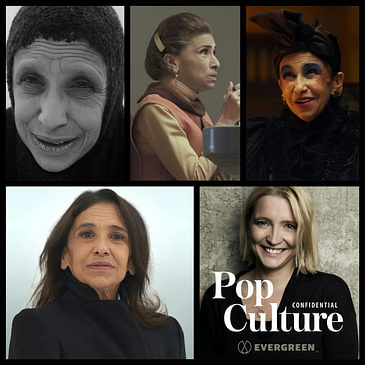We are honored to have the brilliant Kathryn Hunter on the show this week. The award winning actor has played both Lear and Richard III on stage and gives an extraordinary performance as the three witches in Joel Coen's 'The Tragedy of Macbeth'.
Ms Hunter talks to Christina about working with Francis Ford Coppola in his upcoming film 'Megalopolis', the tattooed madame of Lanthimos 'Poor Things', 'Andor,' her process and the horrific car accident that left her with a broken back but also transformed her approach to her work.
Learn more about your ad choices. Visit megaphone.fm/adchoices


